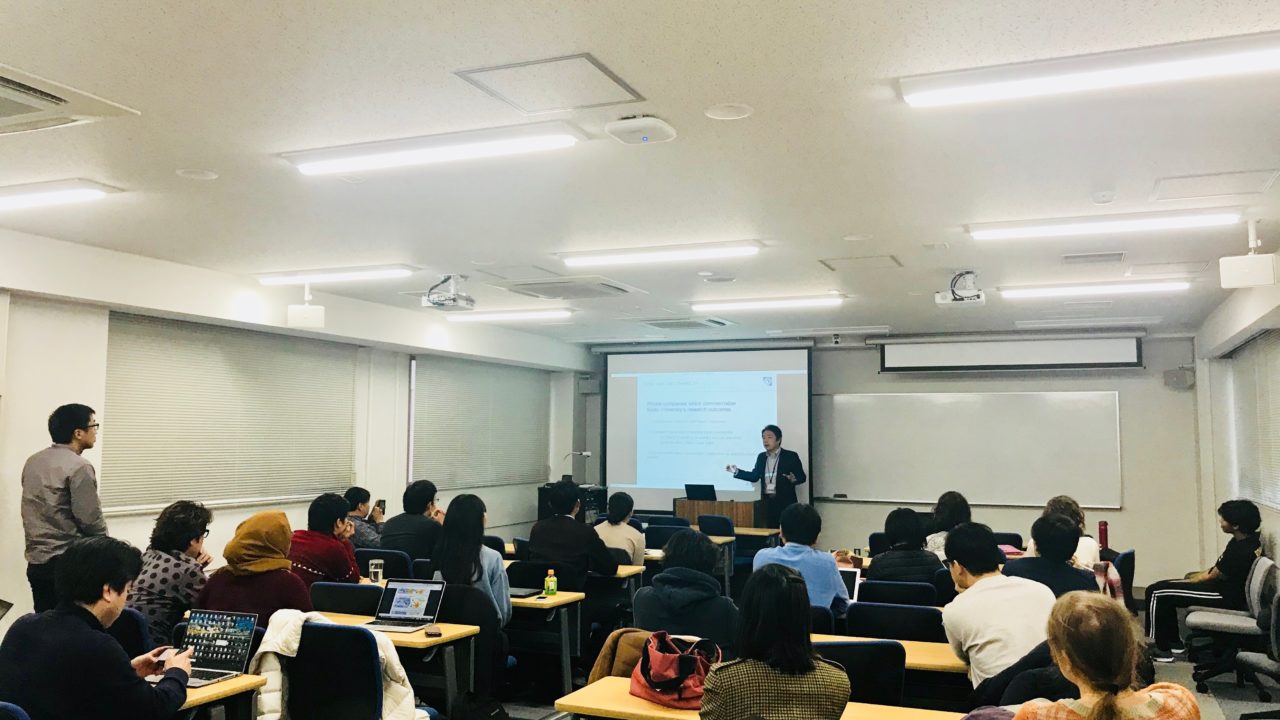
【Group Composition】
Currently 133 members
From 33 countries from the world
Albania, Azerbaijan, Canada, China, Colombia, Germany, India, Indonesia, Iran, Israel, Japan, Kurdistan, Lebanon, Malaysia, Mali, Morocco, Myanmar, Nigeria, Pakistan, Philippines, Russia, Singapore, South Korea, Spain, Sri Lanka, Sudan, Sweden, Taiwan, Thailand, Turkmenistan, Uganda, Ukraine, Uruguay, USA.
【Mission】
The world is now crossing national borders and more economically interdependent than ever before, but various values and ways of life collide, causing fragmentation and conflict. In Japan, with the declining birthrate and aging population, and a shortage of labor force, it has become essential to work with foreign workers and to diversify gender disparities. In addition, there is an urgent need to change the way of working and working in a sustainable society with longevity and environmental changes.
As one of these solutions, various universities and educational institutions have a sense of crisis and ambition to create an entrepreneurship department to create leaders for a new era, trying to create a future through new business.
However, many of these are focused on short-term listing and social impact because they are intended to solve global social issues and revitalize the Japanese economy. As a result, the happiness and way of life of an entrepreneur is not fully considered. In addition, in order to create a society that has a sense of problems with conventional stereotypes and that more people feel abundance, diverse opinions from a variety of perspectives are required. However, everywhere of entrepreneurship clubs are a tendency to be composed of similar people.
Therefore, if there could be entrepreneurship to realize a sustainable way of working, such as the promotion of personal health, the enrichment of time with family and friends, and the fulfillment of work, which are indispensable for a prosperous life, there could be more variety of entrepreneurial styles based on individual values and life stages. I thought that by expanding the entrepreneurship to fulfill such personal desires, we could be freed from social prejudice and beliefs and create a future where we can connect and support each other.
Based on this awareness of issues, we established “Kyoto University Entrepreneurship International” to create opportunities to come in contact with various values and think about how to start a business to realize the lifestyle that individuals want.
In “Kyoto University Entrepreneurship International”, firstly, provide opportunities for collaboration to people with diverse backgrounds from students, researchers, graduates, and graduates who are enrolled in Kyoto University and Kyoto University Graduate School from all over the world for understanding beyond the difference each other. Secondly, we will contribute to society by exploring entrepreneurship and ways of working from various angles and disclosing information.
Finally, thinking about the unique life that individuals want and the way they work and entrepreneurship, and actively cooperating in related fields of research within Kyoto University for individual happiness and society.
【The Goal of the Club】
Kyoto University International Entrepreneurship Club (KUIEC) aims to provide an environment where students can cultivate their entrepreneurship and leadership skills. KUIEC is trying to bringing entrepreneurs and all who are interested in entrepreneurship together to expand their networks and share ideas.
①Finding part time jobs, internships,and volunteer jobs to its members. Sharing opportunities, such as conferences, seminars, fellowships, and trainings abroad or inside Japan.
②Encouraging members to pitch their innovative ideas and use KUIEC to develop it. Furthermore, KUIEC will help in providing resources, experienced entrepreneurs to mentor them and implement their ideas.
③Helping members involve in developing a business, working on a business plan, and implementing a startup.
④Organizing meetings and events to invite business experts, and skillful entrepreneurs to share their experiences. Organizing competitions to award the best business ideas and help them implement them.
⑤Cooperate in research into entrepreneurship, human resource management, and related fields. In addition, information on the results of the research will be provided.
【Leadership Team】
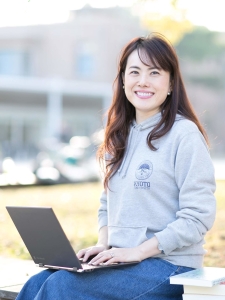
Chair: Kanako AKAGI (From Japan)
Nickname: Kana
Graduate School of Management, Kyoto University MBA
Kanako Akagi (Kana) started to join in the tour alone when she was 6 years old. Experienced studied abroad and graduated from high school in the United States. After graduated from Shiga University Faculty of Economics, she had experienced “business full course”, such as being an office worker, working at her father’s company and starting her own business with her husband. Became the first certified instructor in Asia area for the “Marriage Program” of “The 7 Habits of Highly Effective People(by Stephen R. Covey)”, such as the best seller of over 30 million copies worldwide. Co-authored with her husband “Marriage Premium-How to live a Marriage Promising Successful Work-” is a long seller of 20,000 copies in Japan. After pregnancy, she started an online school to give family time the highest priority. Currently, the number of online video students exceeds 20,000 and has spread to 45 countries around the world. She entered Kyoto University Graduate School of Management in her 40s and also became a member of the Kyoto University Design School. She founded and became a representative of the Kyoto University International Entrepreneurship Club as a result of giving advice for Kyoto University students in the graduate school self-study room. Through opportunities for multinational members to collaborate, she supports global entrepreneurship and research related to various entrepreneurial styles that are not confined to lPO, in order to realize the lifestyles that individuals want. Her master’s thesis was awarded “Creative Award” such as one of the top 3 best pieces of research in Kyoto University Graduate School of Management, Service and Hospitality course. The latest book “Live Family> Work: Family Priority First than Work” (Softbank Creative), written while studying at GSM is now on sale with great reviews. After graduating from graduate school, she started online community “Heroine Power” as a place where women can express themselves freely as a designer of life. Women from various positions such as office workers, housewives, and entrepreneurs participate as members now and support each other while creating a new network. She is also a mother of an elementary school son.
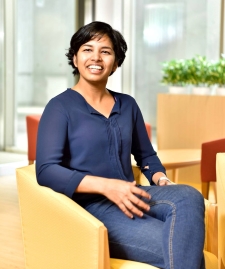
Harini Samarasinghe is an MBA graduate from Kyoto University and during her tenure as a student she co-founded the Kyoto University International Entrepreneurship Club in January 2019. She’s passionate about helping foreign entrepreneurship among universities. Having worked as a tax accountant and a Public Speaking trainer before she’s now on a new adventure to understand the startup ecosystem of Japan and contribute to its growth. Currently she’s working fulltime for the Entrepreneurship Support Unit of Almacreations to foster and strengthen the entrepreneurial ecosystem of Japan.
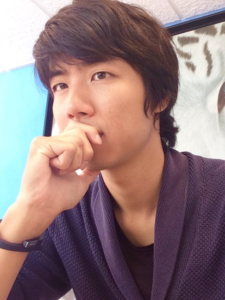
Hiroshi Wada (Hiro) is currently enrolled in the MBA program of Kyoto University as a full-time student. After graduating from a university in the United States, he started several new businesses in Mexico, managing various Japanese restaurants and a YouTube channel. The unique concept of Japanese people introducing Japanese culture in Spanish, not in Japanese or English, started to gain a lot of attentions in Latin American countries and now the channel has more than 2,000,000 views and 63,000 subscribers all over the world. At the age 28, leaving the businesses to his cofounders, he started to conduct researches on decision-making processes of entrepreneurs and external influences on their mentality at Kyoto University. In autumn of 2019, he established a new business of an online language platform with a vision of “Re-discovery of undervalued resources”. He’s allergic to cats and dogs, but nothing can stop him! He loves them so much!

Haissam Khan is an Electrical Engineer by profession before graduating with an MBA from Kyoto University. He holds more than 8 years of overall working experience as Design Engineer in Japan, UAE, and Pakistan. He has a strong interest in unconventional things like sustainable business development, circular economy, global peace, social enterprises, green policies, climate change, future of technology and its impact on the human condition, livelihood and overall wellbeing. He is also highly interested in achieving the UN’s Sustainable Development Goals (SDGs) through ‘Impactpreneurship’ as part of KUIEC board member. He is a perpetual learner and believe in continuous improvement by getting out of comfort-zone, and have won JETRO award for business support and facilitation, in addition to a monetary award by The Kyoto Shinkin Bank, during his team participation in the International Entrepreneurship Contest for University Students in 2020. Apart from professional and educational activities, he happened to be a regular volunteer and also a Member Executive Committee and Campus Ambassador for Pakistan Student Association Japan. On his personal side, he is a proud father of one beautiful baby girl.
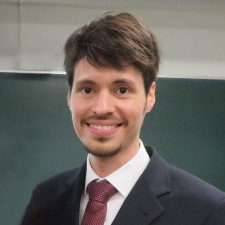
Ricardo Martinez is an MBA graduate from Kyoto University. Having also a Systems Engineering degree, he transitioned from working a full-time job as a software engineer to engaging directly with customers as a business technology consultant. His professional experience includes the development and commercialization of cloud-based software platforms for small and medium enterprises (SMEs) in the retail industry. Currently, he combines his practical experience in both software engineering and business management to provide a broad range of specialized IT consulting services to corporate customers from diverse industries in Colombia, including digital business strategy, custom-made software and implementation of Point of Sale systems. His current areas of professional interest are practical business applications of AI and Machine Learning and startup ecosystems. He is also serving as a Business Development advisor for early stage startups in Japan.

Patrick Ocheja is currently a Ph.D. candidate in Education Blockchain Research at the Graduate School of Informatics, Kyoto University. His research is focused on enabling decentralized learning analytics by implementing a blockchain-based system for connecting academic records of students across different schools. He doubles as the CTO of Jobwher, a remote-work startup in Osaka which he co-founded in 2019. Jobwher is the first complete remote work tool for companies and freelancers with features such as talent sourcing, contract and project management, and payments. Patrick has more than 5 years’ experience as a software engineer with experience in building applications in search (Microsoft Bing), education, energy and fintech. He loves playing PES game, and watching movies in his free time.
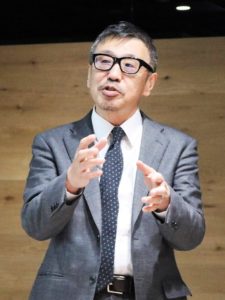
Yasunaga Wakabayashi
Professor, Graduate School of Management, Kyoto University
Graduated from the Kyoto University Faculty and Graduate School of Economics Master’s Course, and withdrew from the Doctor’s Course. PhD (Economics). Fulltime Lecturer at the Kyoto Sangyo University School of Business Administration, Associate Professor at the Kyoto University Faculty of Economics and currently Professor at the Kyoto University Graduate School of Economics. Former President of the Association of Product Development and Management, Chairman of (NPO) TOC for Education Japan, and others.

William W. Baber
Associate Professor, Graduate School of Management, Kyoto University
William W. Baber has combined education with business throughout his career. Currently he is teaching and researching negotiation and business models as an Associate Professor in the Graduate School of Management, Kyoto University. He has also taught as a visiting professor at University of Vienna and University of Jyväskylä. Additional experience includes economic development in the State of Maryland and supporting business starters in Japan. He is lead author of the textbook Practical Business Negotiation and co-editor of Transforming Japanese Business. Recent articles include Transition to Digital Distribution Platforms and Business Model Evolution as well as Identifying Macro Phases Across the Negotiation Lifecycle. Negotiation simulations include Mukashi Games and Pixie and Electro Car Merger, both available through TheCaseCentre.org.